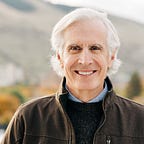In the Beginning, There Was Boston
I qualified for the Boston Marathon on December 6, 2009.
Boston isn’t the only marathon that uses a qualifying time, but it is the most important marathon to do so. It might be the most important marathon in the world, given its long history and the qualification requirement. (To be fair, like many things in life, you can run Boston if you have money — about a third of the runners each year don’t qualify but run for charity dollars raised.)
I ran the Boston Marathon on April 18, 2011.
It was an amazing experience — exciting, exhilarating, exhausting, painful, affirming — and one that I shared with 23,878 other runners and a million or so spectators, including my wife and daughters, my parents, and our family friends.
And that, you would be forgiven for thinking, was that.
The Boston Athletic Association changed the qualification criteria for the marathon in 2013 because of the vast oversubscription of the race in 2011, and then lowered the qualification times again in 2019. A marathon time under four hours would have got me into the 2011 race at my current age — 62 years — but now I’ll need to run sub-3:50. To actually toe the line in Hopkinton, I’ll need to be a few minutes below that, because, to ensure that the fastest qualifiers get to participate, the BAA benchmarks qualifiers against their qualifying thresholds.
If there are too many would-be entrants than the race’s capacity, organizers start with the people who beat their qualifying times by the largest margins and work down the list until the field is full. In the last race unaffected by COVID, entrants had to be 1:39 faster than their qualifying time.
I trained and raced marathons for five years before I qualified in Sacramento at the California International Marathon. Injuries — plantar fasciitis most frequently — were the main culprit for the time it took to go from 4:09 at the 2004 Death Valley marathon to 3:29 at 2009 CIM, but I also had to learn how to sustain effort, focus energy, and suffer discomfort. I needed to learn that I got no benefit from training for prior marathons — each one requires its own full attention and preparation. I needed to add speedwork and core strengthening to my training — running 3 days a week wasn’t going to be enough. And I needed a pacer on race day — my friend Kerry sacrificed her race on that very cold December day to escort me to the finish line.
I qualified by one minute, four seconds.
As the years have passed, I’ve sometimes wondered if I could qualify again for Boston under the stricter time standards. I remember the training as grueling, but it’s an intellectual memory, one without much force. I might be a tad dismissive about what it will take to get back into that kind of fitness. The work. The luck. The perseverance.
It’s the perseverance that will get you. You have to choose the marathon every day for months on end if you are to succeed, and that’s still only if you don’t hurt yourself in a workout. That’s the challenge of endurance sports like the marathon: If you can get to the starting line healthy with your training fully underneath you, barring a race-day accident you will finish the event about where you think you should.
So I’ve always thought I could re-qualify. I’ll need to be relatively faster, which means harder work than before. And I’m 14 years older than I was when I qualified the first time, so I’ll need more recovery than before. That means a longer time of choosing the marathon over all else.
But do I really have it in me? Especially since I’m also dealing with a recent divorce, a move from California to Montana, a fledgling relationship from a distance, a failing business, a new career focus, aging parents, and two adult daughters in the early stages of launching their independent lives?
I guess we’ll find out together.
